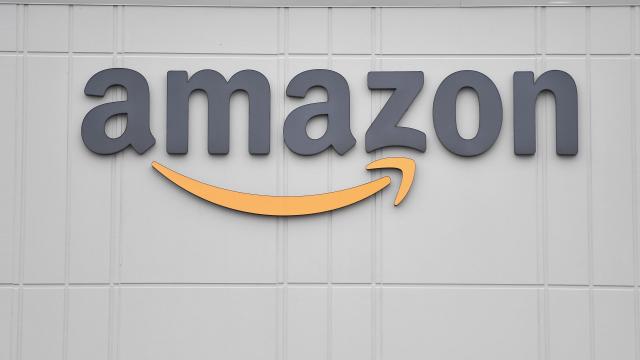As part of the bare minimum that Amazon is doing for its warehouse workers right now, the mandatory temperature checks for roughly 100,000 of them might be one of the more ethically icky for its workers’ bodies and budgets. If that didn’t turn you off, there’s a good chance that its sourcing for the thermal-tracking tech that’s needed to accomplish these mass-temp checks just might.
According to a Reuters report on Wednesday, hundreds of thermal cameras that Amazon purchased to do the dirty work of temperature-taking were from a Chinese firm whose tech has been blacklisted by American officials on the grounds that it helped China detain and monitor the Uighurs and other Muslim minorities—meaning that the same tech keeping watch on thousands of Amazon workers might also be used to keep watch on literal modern-day concentration camps an ocean away.
Of all the cameras being used in Amazon warehouses right now, sources familiar with the deal explained to Reuters that 500 cameras purchased by the tech giant came from Zhejiang Dahua Technology Co Ltd—or Dahua Technology for short. Last October, this company was one of the 28 that made the Department of Commerce’s blacklist on the grounds that they were “implicated in human rights violations and abuses in China’s campaign targeting Uighurs and other predominantly Muslim ethnic minorities.”
Amazon declined to comment when contacted by Gizmodo but told Reuters that its hardware “complied with national, state and local law,” in spite of the federal blacklist. And they’re technically right: Amazon—along with an untold number of other major corporations—are able to buy from these companies to their heart’s content because they’re in the private sector, while the ban only dictates public entities. Still, even these public partners found it tricky to uproot Dahua from their systems, with one 2019 report finding thousands of cameras from blacklisted companies still functioning on federal grounds.
Dahua certainly isn’t the only company offering thermal-detecting tech, but these systems—which cost more than $US20,000 ($30,782) a pop—are popular enough to get buyers from major brands, like Amazon, IBM, and Chrysler, according to the Reuters report. Dahua, for its part, boasts that these thermal cams can be used in “Commercial Buildings, Healthcare Facilities, Airports, [and] Metro Stations,” along with “Public Gathering Locations.”
These sorts of cams work by checking the thermal radiation—or warmth—being given off by one person when compared to a baseline. Dahua—a company renowned for its face-detection prowess—uses facial recognition to make sure it’s looking for heat in the right places, and can also use this tech to analyse “gender, age, expression, glasses, moustache,” and the presence of a mask, if need be. This sort of tech could also be handy, if, say, Amazon wanted to keep watch on which employees might’ve been standing close to someone that later reported coming down with covid-19.
Thermal cameras like these aren’t just ethically icky, don’t even have the FDA clearance they would usually need to operate. Under normal situations, cameras used to detect human temperature like Dahua’s typically fall under the category of “medical devices,” and like all other medical devices, need to go through the registration and certain quality regulations. The thing is—in light of the pandemic-hell being wrought on our world right now—the FDA’s relaxed these terms quite a bit, meaning that Dahua’s cameras—and anyone else’s—can be used in Amazon warehouses and hospitals alike without the typical level of oversight they’d usually get.
Amazon explained to Reuters that their equipment didn’t only omit “personally identifiable information,” but that none of these cameras had network connectivity to begin with. But still, when the company being employed is one of the biggest names around for facial recognition—and because faces are pretty darn identifiable—you have to wonder what the company might be hiding.
